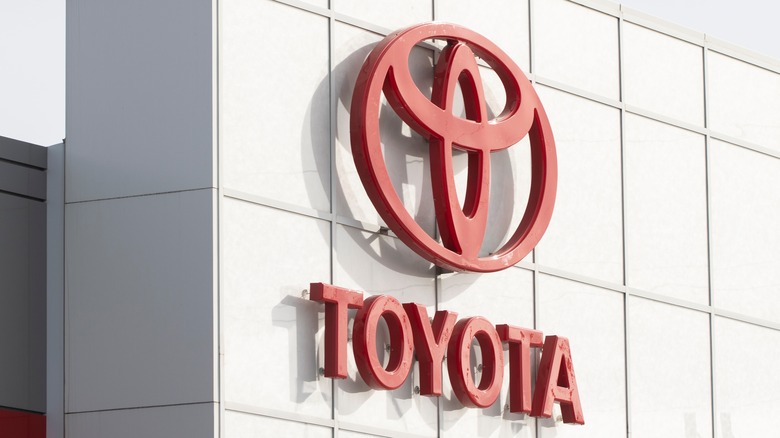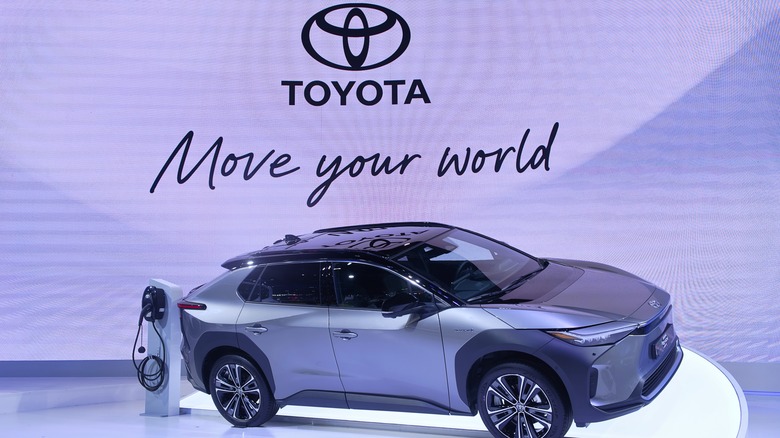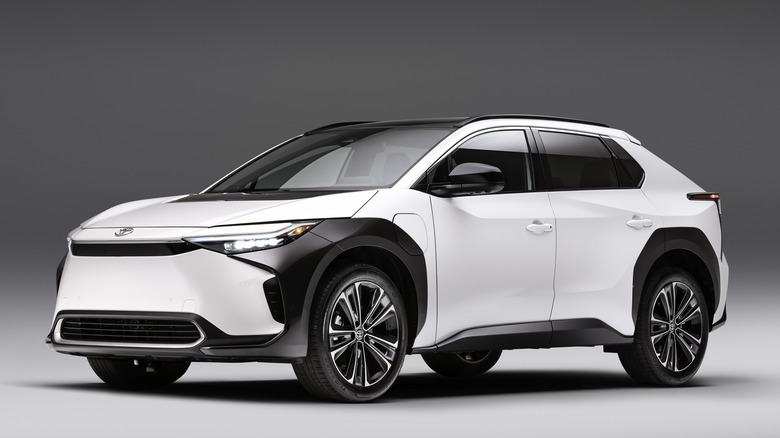The Reason Toyota's EV Platforms Are Way Behind The Competition
In the world of electric vehicles, major automakers like Ford and General Motors played second fiddle to EV-specific companies like Tesla for a few years. With the exception of the Nissan Leaf, it was at least a few years until established car companies brought any serious EVs to the market. Now, in 2022, Ford has the F-150 Lightning, GM has the Bolt and a slew of upcoming Ultium equipped models like the EV Silverado and Equinox. Volkswagen offers its iD.4, and Nissan is still soldiering forward with the Leaf. Stellantis is playing catch-up in the U.S. with the EV Ram, but it plans to have a truck within the next couple years.
Fortunately, now there are several options from large automakers for EV customers. One company, however, has been noticeably absent from the EV conversation, which is unusual as it's not only one of the largest automakers on the planet. It's also partly responsible for many advances in EV technology that are used today. That company is Toyota.
A slow start
Without cars like the massively popular Toyota Prius, which hit roads almost 20 years ago, hybrid car technology might have taken longer to gain popularity. As a result, widespread EV usage might not have taken hold until much later. In short, modern EVs owe a lot to Toyota. But in the fully electric realm, Toyota has been severely lacking. The company does make a confusingly named bZ4X EV crossover that's competent, if a little boring. But after the wheels literally fell off and a forced recall, the bZ4X failed to catch on after it resumed production only last month.
Now, according to Reuters, Toyota is trying to get back on track. The brand is setting its sights, not on Ford or GM, straight at the symbolic heart of the EV landscape, Tesla. With a new $38 billion plan to take the EV world by storm, Toyota hopes it can knock Elon Musk's EV powerhouse off its pedestal.
Toyota's blank slate approach
Toyota is going back to the drawing board with its EV strategy. Reuters reports that the company is suspending work on upwards of 30 previously upcoming EV models. Although specifics have not yet been divulged, it looks like Toyota is going with a cash-infused blank slate approach to a market segment where it has been lacking for years. The sources from the Reuters report stated that the company intends to bring costs down and streamline the overall process of bringing new EVs from the beginning of the production line to the driveways of customers.
Time will tell whether or not Toyota will make good use of its multi-billion dollar do-over. Fixing the glaring safety issues with the bZ4X is a step in the right direction, but it will take more than a single EV crossover on a new set of wheels to beat Tesla and any other major automaker in the realm of EV cars.


